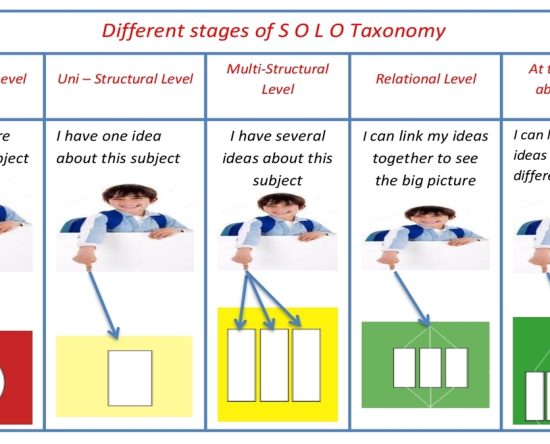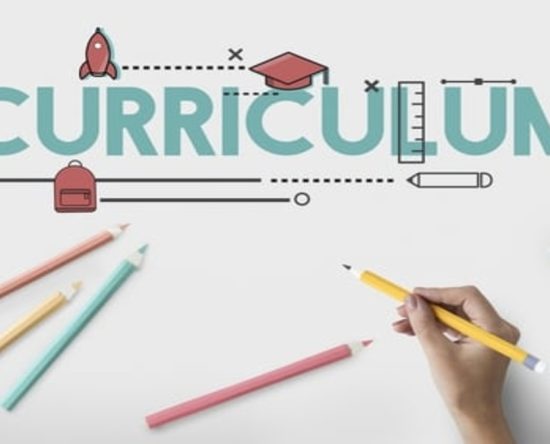
The Definition of Curriculum
Curriculum includes all those activities which are utilized by the school to attend the aims of education. Curriculum is all the experiences a learner has under the guidance of the school.
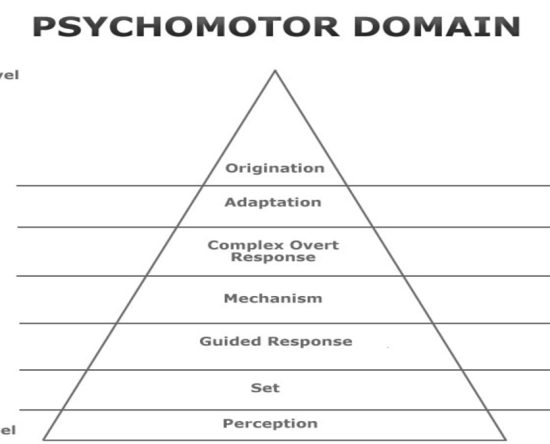
Psychomotor Domain — Simpson’s Taxonomy
The Simpson’s psychomotor domain (1972) includes physical movement, coordination, and use of the motor-skill areas. Simpson’s psychomotor domain focuses on utilizing motor skills and coordinating them.
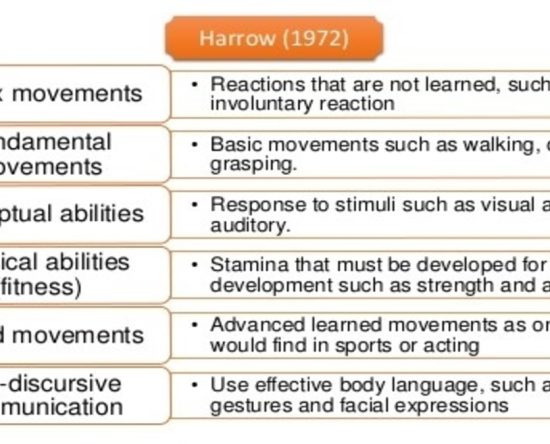
Psychomotor Domain — Harrow’s Taxonomy
Harrow’s taxonomy (1972) of psychomotor domain focuses on the development of physical fitness, dexterity, agility, and body control to achieve a high level of expertise. Harrow’s taxonomy is organized according to the degree of coordination including involuntary responses and learned capabilities.
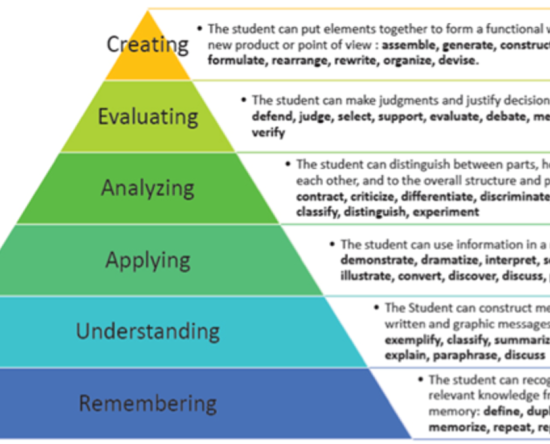
The Revised Bloom’s Taxonomy
Lorin Anderson, a former student of Bloom, and David Krathwohl (2001) updated and revised the Bloom’s taxonomy reflecting relevance to 21st century work for both students and teachers. The revisions they made in the Bloom’s taxonomy appear fairly minor; however, they do have significant impact on how people use the taxonomy. These changes can be […]
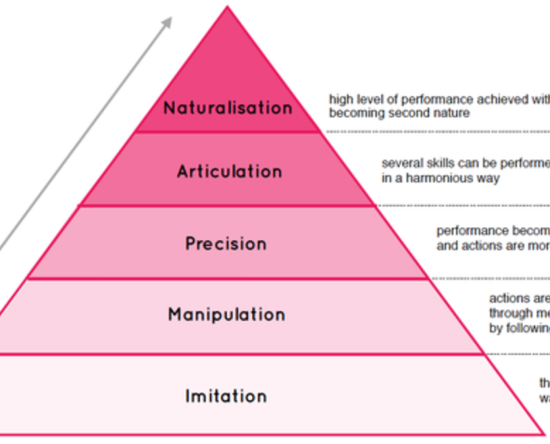
Psychomotor Domain — Dave’s Taxonomy
The Dave’s taxonomy of psychomotor domain includes utilizing motor skills and the ability to coordinate them. This psychomotor domain includes physical movement, coordination, and use of the motor-skill areas. Development of these skills requires practice and is measured in terms of speed, strength, endurance, coordination, precision, distance, procedures, or techniques in execution. The Dave’s psychomotor […]
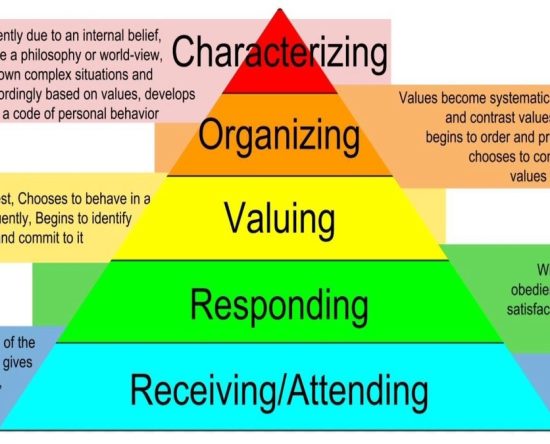
Affective Domain — Krathwohl’s Taxonomy
Krathwohl’s affective domain taxonomy is perhaps the best known of any of the affective taxonomies. The affective domain focuses on the attitudes, values, interests, and appreciation of learners. This domain is further categorized into following five levels;
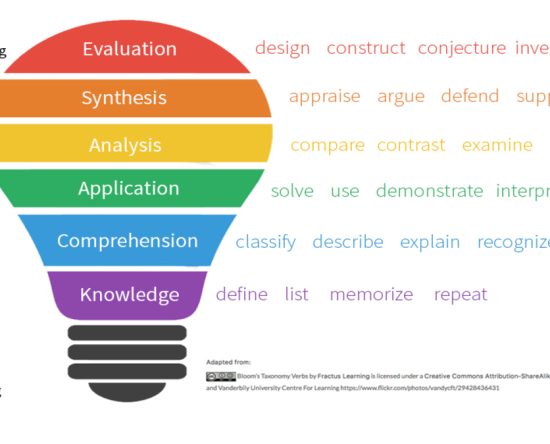
Cognitive Domain — Bloom’s Taxonomy
The cognitive domain involves knowledge and the development of intellectual skills (Bloom et.al, 1956). Six major categories of cognitive domain of Bloom’s taxonomy are Knowledge, Comprehension, Application, Analysis, Synthesis, and Evaluation.
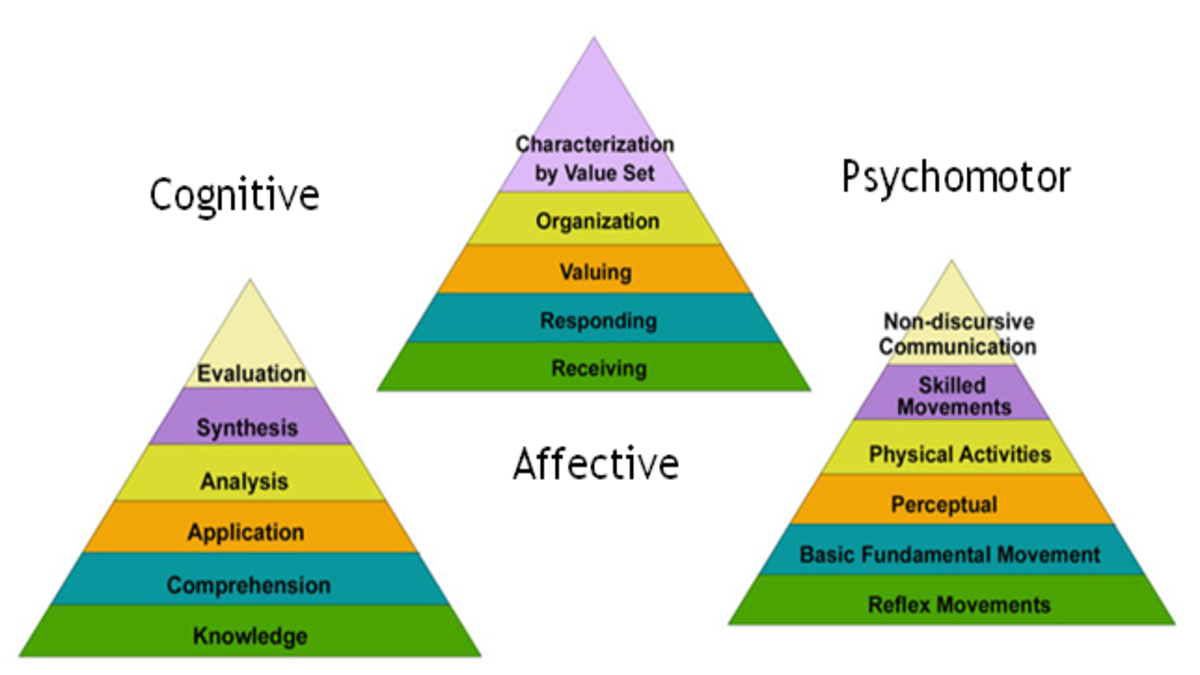
Bloom’s Taxonomy of Educational Objectives
Bloom’s taxonomy is a classification system used to define and distinguish different levels of human cognition—i.e., thinking, learning, and understanding. Cognitive, Affective and Psychomotor domain.
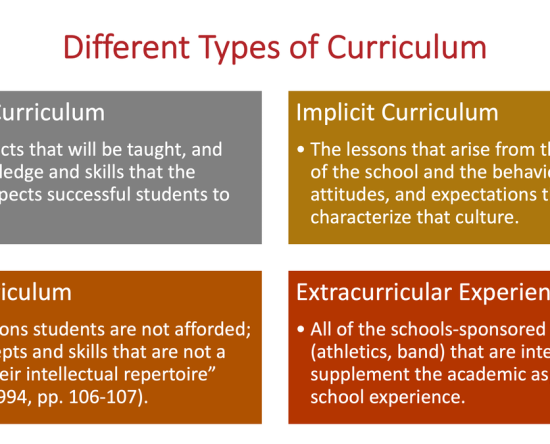
Different Types of Curriculum
Ten basic patterns or different types of curriculum are as under;
Child-Centered Curriculum, Teacher-Centered, Core, Overt, Explicit, or Written, Covert or Hidden, Integrated, Subject-Centered, Broad Field or Holistic, Activity Centered, Null.

